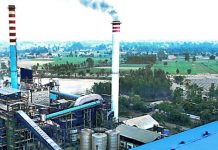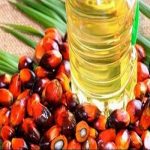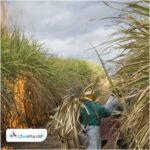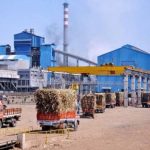The Energy and Resources Institute (TERI), supported by the Asian Clean Fuels Association (ACFA), has developed a report, titled “Enhancing India’s Biofuels Program: Examining the Role of Oxyfuels in India’s Clean Fuel Transition,” that highlights complementary strategies that India could deploy to reduce reliance on imported fossil fuels by adopting fuel ethers as part of the national fuel strategy. Fuel ethers like Ethyl Tertiary Butyl Ether (ETBE) and Methyl Tertiary Butyl Ether (MTBE) have been widely adopted in several countries including Japan, Germany, Netherlands, China, France, Spain, Malaysia, Taiwan, Mexico and others with great success. ETBE has been seen improving the energy content of ethanol by 3 times, while reducing carcinogenic benzene emissions by 27% compared to ETOH direct blending. ETBE has also been seen to improve ETOH Fuel Efficiency and hence improving mileage, leading to major cost savings to consumers.
ETBE (Ethyl Tertiary Butyl Ethanol) is often referred to as “Easy Blend to Ethanol” because it can be easily blended with gasoline in the refinery, unlike Ethanol, which requires significant CAPEX for blending infrastructure. ETBE is produced by combining Ethanol with Isobutene, while MTBE is made from Methanol and Isobutene, which is present in C4 streams from refineries and crackers.
The report iterates, that it is imperative for India to look at an immediate and cost-effective solution to align with global standard of minimum of 98 RON (or at least 95 RON) and upgrade from the current average of 91/92 RON). The upgrade of octane from 90 RON to 95 RON will allow India to benefit from an immediate fuel economy improvement by 2% to 10%. With improved fuel performance automakers can meet CAFE and global fuel standards.
The report highlights how the automotive industry in India should have the adequate biofuel supply of higher RON in the next 3–5 years. If not, India not only would incur domestic supply challenges but also lose the export market as high-efficiency engines won’t be able to operate with low RON gasoline India should look at complimenting blends of oxyfuels like ethers, MTBE, ETBE, TAME etc. to augment the ethanol blending target. Indian refineries can be encouraged to ramp up MTBE, ETBE, and TAME production to meet domestic and export demand and to address balance of trade and energy security challenges.
Dr. Vibha Dhawan, Director-General of TERI, said, “India’s multi-fuel opportunity is significant, and the role of fuel ethers is transformative in driving our sustainable energy future. The government’s landmark policy measures, including the removal of subsidies for petrol and diesel, incentivizing electric vehicles, and scaling-up emerging technologies, mark a decisive shift towards cleaner energy sources. Fuel ethers in the form of ETBE/MTBE can catalyze positive economic and social impacts.”
ACFA leadership added, “The promotion of India’s ‘ethanol economy’ through the Ethanol Blended Petrol (EBP) Programme has been a significant step in the effective realization of our goal for a self-reliant fuel ecosystem. While the ethanol blending programme has numerous benefits, challenges, such as potential implications on food security due to increased feedstock production and the technical impact of ethanol-blended fuels on the environment, warrant thoughtful consideration. Additionally, the infrastructural challenges related to ethanol storage and transportation further emphasize the need to explore complementary strategies. There are numerous benefits associated with blending ethanol and ethers like ETBE and MTBE, improving further cleaner burning of petrol in engines and acting as octane boosters, replacing undesirable compounds that may have critical technical or toxicological properties.”
The following themes regarding fuel ethers emerged from the report:
- Energy security and balance of trade:
- Fuel ethers are already directly produced at the refinery (no additional Scope 1 and 3 emissions in its distribution and production value chain) and are widely available for import or local production in India.
- ETBE-blended gasoline can reduce GHG emissions up to 30% more than E10 compared to ethanol-free or non-oxygenated gasoline.
- ETBE/MTBE having a lower Oxygen content versus Ethanol allows the flexibility of adding more oxygenates into the gasoline pool thereby reducing crude consumption.
- ETBE and MTBE are produced by combining Ethanol and Methanol with Isobutene, respectively, which is abundant in the C4 streams of India’s refineries and crackers. India has an MTBE capacity of about 600 KTA, thus enabling potential import substitution.
- Financial Viability:
- Less costs to refiners due to higher energy efficiency in operating refinery units, no need of additional anti-foaming agents and CAPEX expenditures, valorisation of low value, high RVP refinery streams such as C4/C5.
- Less costs to consumers due to less corrosion and therefore maintenance of the cars, fuel efficiency
- Cleaner Air – Reducing the impact of Air Pollution
- Each year, air pollution costs Indian businesses nearly USD 95 billion. This translates to 3% of the gross domestic product (GDP). Improving air quality thus has significant social and economic benefits and fuel ethers can play a decisive role in this transition
- Cleaner combustion and less evaporative emissions (upto 15% less reformate/aromatics blended into the gasoline) – less particulate matter (PM2.5), compared to ethanol, which has a cooling effect on combustion and therefore leads to more PM2.5 generation
- Reliable Fuel at the Pump with Bharat Stage VI Standards
- Blended fuels offer consistent and reliable fuel quality, with direct blending at the refinery itself
- No impact of comingling effect of different ethanol blends, leading to off-spec fuel
- Consistency in fuel quality during distribution (direct from refinery) to the pump sites
From a medium to long-term perspective, the biofuel policy should support advanced R&D for scaling and commercialization of renewable ETBE and bio-MTBE production technology innovation.
One of the key enablers to facilitate adoption of ether-blended gasoline would lift the existing cap of (15 vol% cap on oxygenates in gasoline) and allow oxygenates up to 3.7 wt% oxygen limit in import and export of gasoline.
Click here to read the full report

















